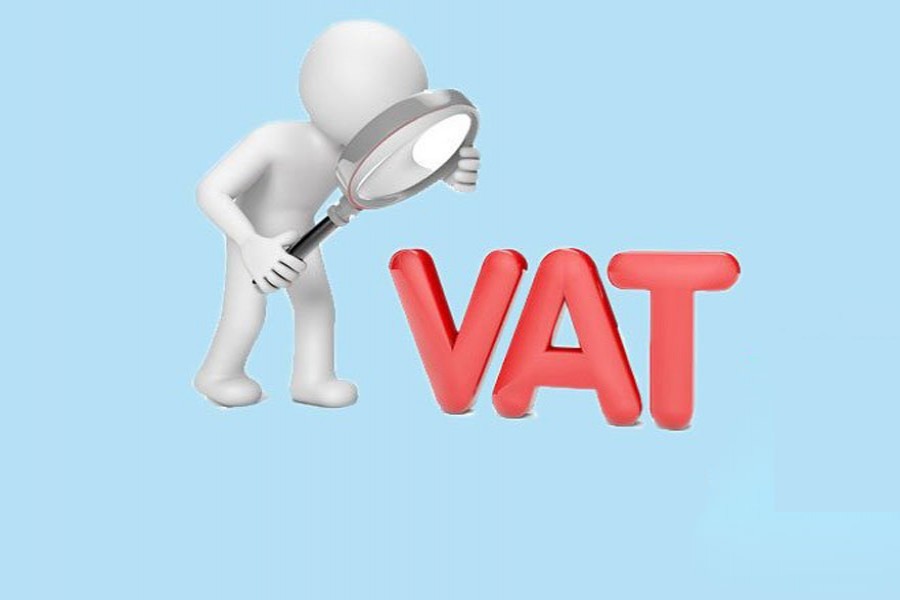There has been a lot of clamour about the new VAT law. Over the past few years, consumer rights groups have discussed the topic, columnists and economists have inked their observations through columns and on television while trade bodies have shared their concerns about the ways through which this new law can become more effective.
Now there are four VAT rates. These are, 5, 7.5, 10 and 15 per cent. These are a change from the previous single 15 per cent VAT rate that was applicable for over the last three decades since early 1990s. Business people are happy with the new VAT law. Common people are still not sure as they feel that this will increase their tax burden. The new rates will force common consumers to bear 37.5 per cent indirect tax incidence if the producer or supplier do not enjoy rebate for input VAT while paying less than 15 per cent VAT.
The government has already spent millions on the project. Let us assess the merits of the new rates: Let's say a company imports an item costing Tk 100 by paying 15 per cent VAT. It produces cosmetic fragrance with an added value of Tk 120. At a VAT rate of 10 per cent, under the new VAT law, this comes to Tk 12. The company deposits this amount to the government exchequer while lodging a claim of rebate on its earlier input VAT of Tk 15 at import stage. By law, the government would refund Tk 15 in receipt of Tk 12!
The cosmetic product is then sold to a local trader by the first company along with a 7.5 per cent VAT. After this, the trader sells the product to consumers at Tk 160 plus 5.0 per cent VAT. This pushes the total price paid by a consumer to Tk 168. The trader collects Tk 8.0 from a consumer. A consumer ultimately pays a total VAT of Tk 37.5 or 37.5 per cent.
The proposed law says, heavy industries, like automobiles, freezers, air conditioners, motor cycles and mobile phones will continue to enjoy the VAT exemption facility. Maybe, it is thought that these items are more essential today compared to daily essentials.
VAT will be exempted from items like bread, handmade biscuits, cakes etc. valuing up to Tk 150 per kg. But should these not fall under the VAT-free regime?
Edible oil, including soya bean, palm, mustard, sunflower, canola etc., are consumed by people from all walks of life. But these have been brought under the five per cent slab rate, as they have been enjoying VAT-free facilities for a long time. Edible oil now selling at retail market at Tk 100 per litre will be sold at Tk 105 as soon as the budget is passed.
Additionally, five per cent VAT has been imposed on plastic and aluminium products. These products are used extensively by middle and lower income groups. The imposition of VAT on these items will bear down on the income of these households as the indirect tax burden is shouldered by the common people.
Still, some positive developments did occur from the proposed rules. Local supply of agricultural machinery, such as power tiller-operated seeders, combined harvesters, low-lift pumps, rotary tillers etc., will enjoy VAT exemption. This will help farmers, though the system is still not VAT-free. Basic food stuff, healthcare services, education, entertainment, public transport, financial services and postal services etc., are prime elements of common lives that should have been under VAT-free regime. However, it is encouraging for small and medium enterprise (SME) sector that women entrepreneurs paying rent for showrooms will get exemption of VAT.
Previously, when 15 per cent single rate was applicable, VAT payable on truncated base and tariff value price basically stood at 2.0 per cent and in some cases 5.0 per cent or slightly higher. Now though these two categories have been abolished, the VAT will still be collected at previous rates. No rebates for such cases will be allowed as they are falling under earlier rates. Then, how is the new law being different from previous law in this case?
There is also the question: how will the development revenue target be reached, if dynamic changes are not brought about in the new laws? Tax revenue target has been set at Tk 3,256 billion, which is 62.20 per cent of the total revenue. At least 37.80 per cent of this revenue will be coming from VAT. This indicates that VAT is crucial for the operating and development budget.
The changes in the new VAT law are possibly not as crucial as it should have been in order to achieve the highest turnover and make a positive difference. Rather there are concerns for consumers at the lowest rungs.
Mohan L Roy is an Associate Member of the Institute of Cost and Management Accountants of Bangladesh (ICMAB)


